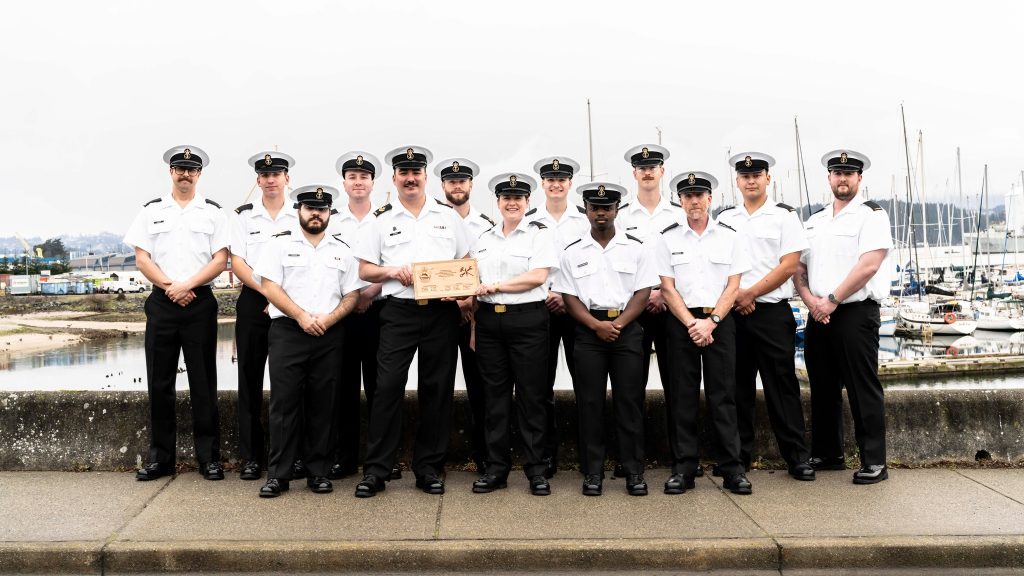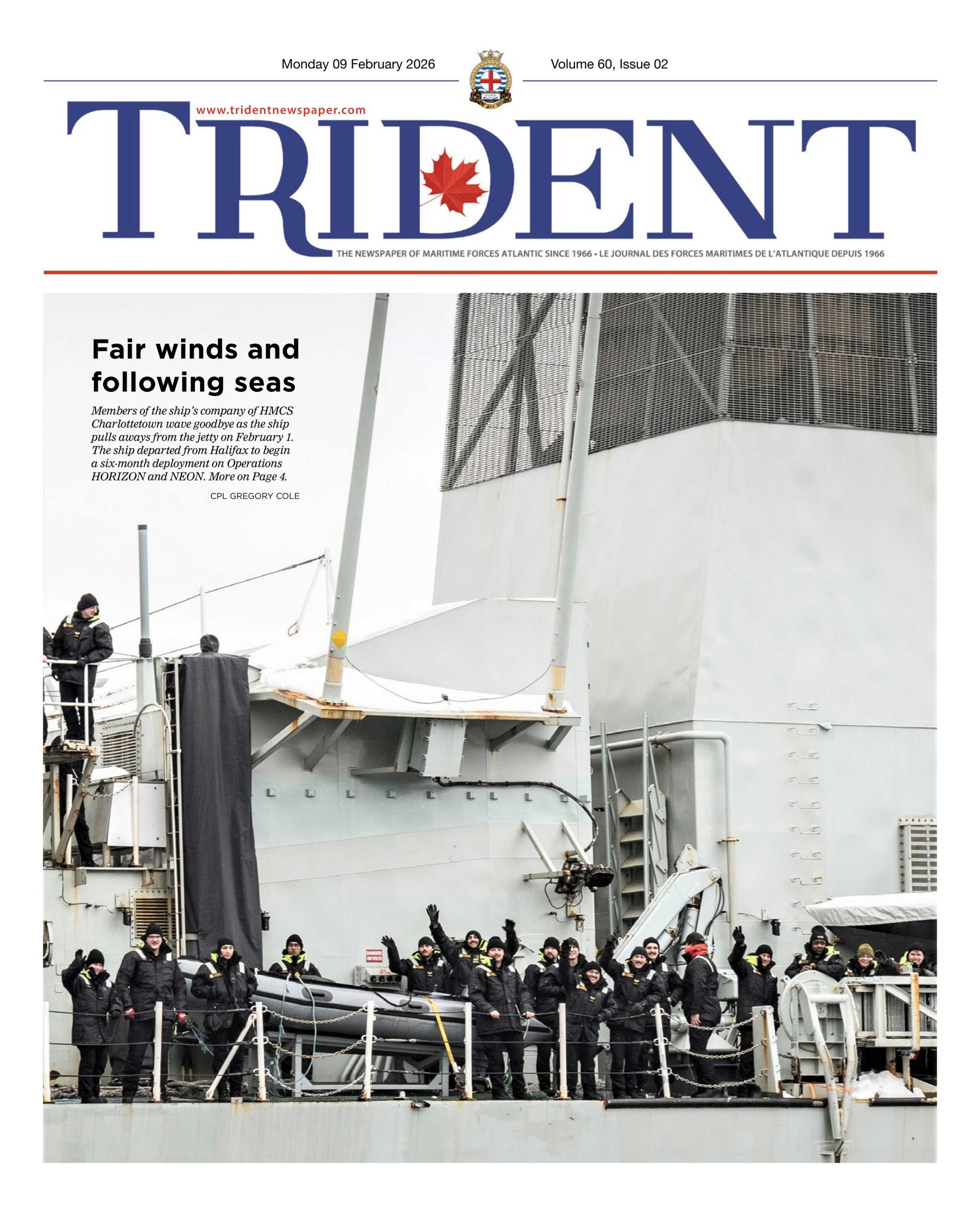
RCN Graduates First Marine Systems Technician Course in Major Trade Overhaul
By Capt Pedram Mohyeddin
The Royal Canadian Navy (RCN) marked a historic milestone with the graduation of the first cohort of the Marine Systems Technician (MST) course at Naval Fleet School Pacific. This event signals the first step towards the official transition to a new, more specialized training system that replaces the broad Marine Technician trade with two distinct occupations.
The ceremony held at the school theatre was attended by senior naval leadership, including: Commodore Dave Mazur, Commander of Canadian Fleet Pacific; Captain (Navy) Mike Stefanson, Commander of Naval Training Group; Commander Meryl Sponder, Naval Fleet School Pacific Commandant; and Chief Petty Officer 1st Class André Aubry, Naval Personnel Training Group Chief.
This course marks the beginning of a new career path for naval technicians. It is the first of several training courses that Marine Systems Technicians will complete throughout their careers, designed to build expertise in their respective mechanical or electrical specializations.
A return to specialization
This transition represents a return to a more focused approach to naval technical training. Before 2017, the RCN maintained three separate trades: Hull Technician, Marine Electrician, and Marine Engineer. In an effort to provide flexibility to operational units, these trades were amalgamated into a single Marine Technician trade. However, over time, it became clear that this broad approach resulted in training programs that were too long and lacked sufficient specialization to provide expertise required for naval operations.
“The Marine Technician trade required sailors to be trained in a vast amount of subject matter,” says Lieutenant-Commander (LCdr) Gregory Oickle, Deputy Commandant of Naval Fleet School Pacific. “The Navy recognized the need for true experts rather than a ‘jack of all trades,’ which led us to rethink and restructure the trade.”
With this in mind, the RCN will soon split the Marine Technician trade into Marine Systems Mechanical Technician and Marine Systems Electrical Technician, allowing sailors to focus on either mechanical or electrical systems from the start of their careers.
New training, new opportunities
One of the most significant changes in the new training system is how recruits are introduced to these trades. Previously, candidates interested in naval technical work would enter as Marine Technicians, without a clear distinction between mechanical and electrical roles. Now, the recruitment process reflects the new specializations, making it easier for potential candidates to find the trade that aligns with their interests and skills.
“If someone is interested in being an electrician and searches for that trade, Marine Systems Electrical Technician will now appear as an option,” explained Cdr Sponder.
“This ensures that recruits are getting into the right trade from day one.” By offering clear specializations, the RCN hopes to attract individuals with strong mechanical or electrical aptitudes who may have previously overlooked a career in the Navy due to the broad nature of the old Marine Technician trade.
The restructuring of the training pipeline involved a complete overhaul of course content. All career courses for both occupations are being designed holistically, ensuring a seamless progression from entry-level training to leadership positions. The changes eliminate redundant training and increase hands-on experience, aligning with the RCN’s goal of producing highly skilled technicians.
The previous courses were heavily reliant on digital learn-ing and classroom time. Now, training is far more hands-on, with decreased emphasis on online or classroom instruction. This ensures sailors get real, practical experience before being posted to a ship.
Pride in the trade
For many sailors, the shift to specialization brings a greater sense of direction and pride in their work. It is not uncommon to have Marine Technicians talk about their original specialization before amalgamation. This move hopes to boost the pride in the trade in the community.
“There’s a lot of pride in being an expert at something,” said CPO1 Aubry to the new graduates. “We want you to feel that pride in your trade. This is your profession, and you will be the ones shaping its culture for years to come.”
The graduation ceremony was not only a celebration for the newly qualified Marine Systems Technicians but also for the instructors, curriculum developers, and leaders who worked tirelessly to bring this transformation to life.
“This has been years in the making, and I could not be prouder of everyone who contributed to building this new training system,” says Cdr Sponder. “It took an immense amount of research, planning, and dedication to create these courses and provide our technicians with the training they need to succeed in the fleet.”
Looking ahead
As the RCN continues to roll out this new training model, more courses will follow, ensuring that future Marine Systems Technicians receive consistent, high-quality training throughout their careers. The Navy expects this shift to enhance operational readiness and improve technical expertise across the fleet.
For the graduates of this inaugural course, this ceremony marks the start of their careers in a trade that is evolving to meet the demands of modern naval operations. With clearer career paths and enhanced hands-on training, these new technicians are better prepared than ever to serve Canada’s Navy with skill and dedication.






